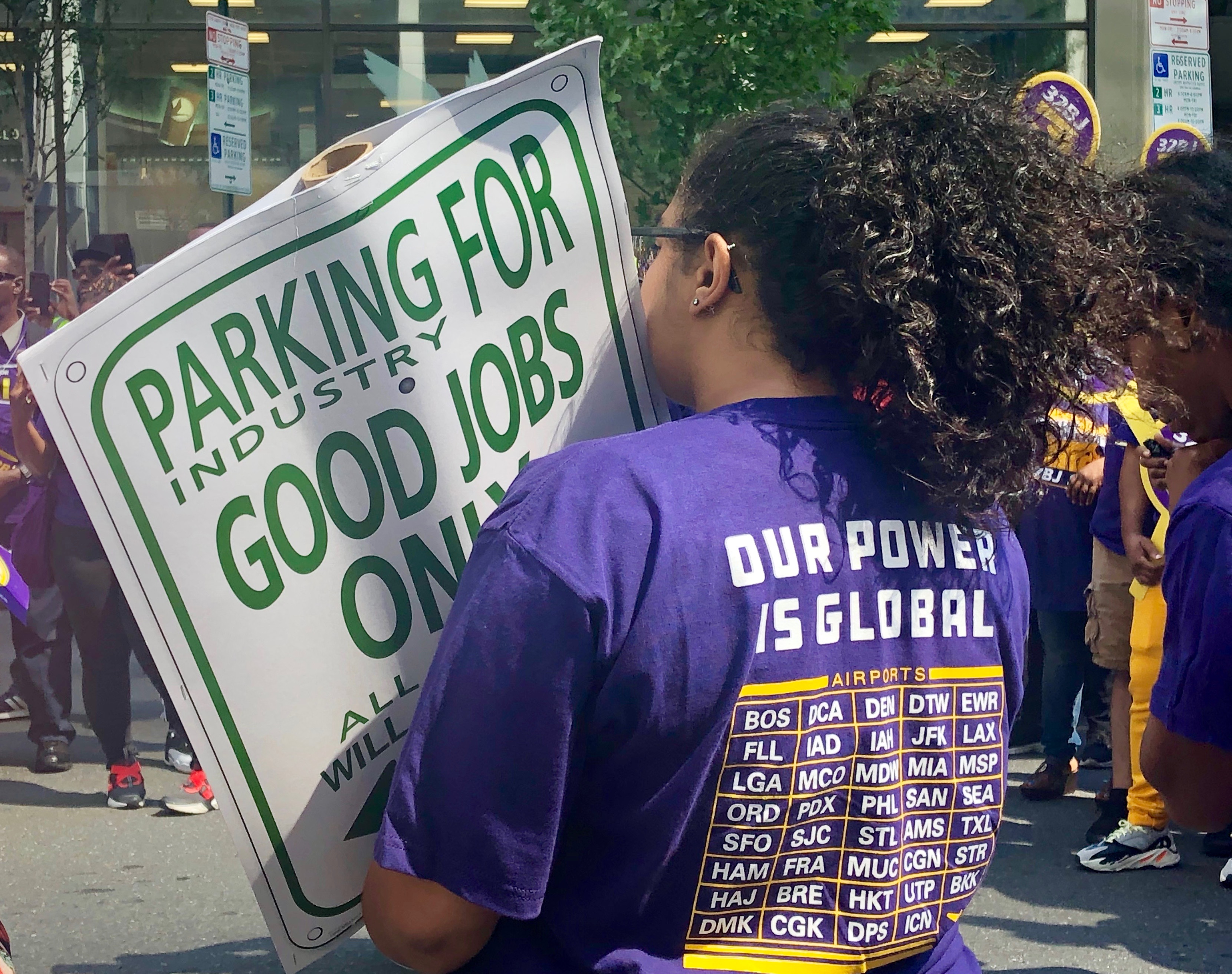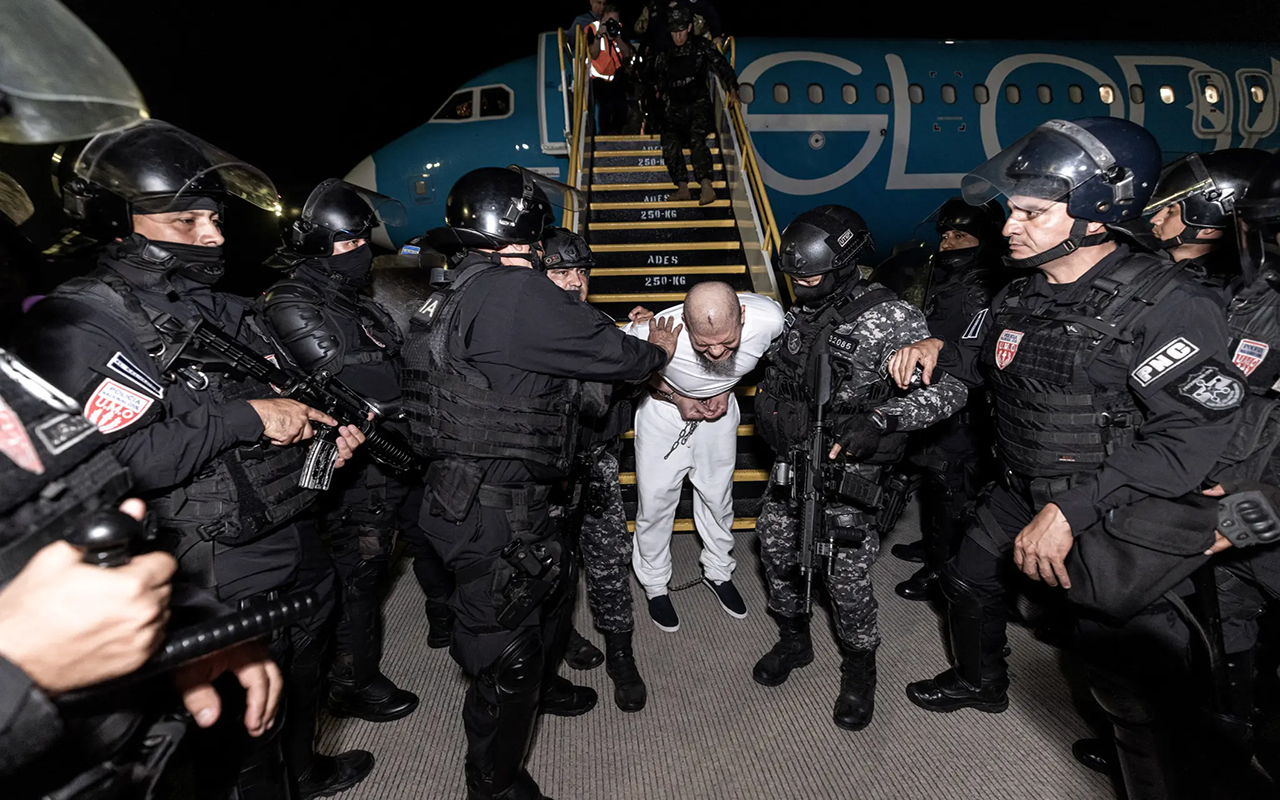
It's a hard-knock life for Philly's parking lot workers
LAZ Parking valets fall in a gray area, where workers' rights aren’t violated, but basic labor conditions are in question.
You work night shifts as a valet at an underground parking lot. It is the middle of a very hot summer. There is no access to water or food in the building. You want to go to the restroom, but there is no toilet paper and the toilet is broken. You could go to the bathroom on the upper floor, but since you are the only one working, no one else is available to return cars to the clients.
Your only option is to wait until the end of your eight-hour shift. Maybe afterward you can drink some water, eat, and quickly go to the bathroom - right before going to your second job.
This is Daniel Turner's daily working grind as a parking lot valet. Turner works for LAZ Parking, the third biggest parking employer in Philadelphia
On June 21, while Turner worked his second job, 400 parking workers took to the streets of Philadelphia to protest conditions - just like his.
LAZ Parking began in Connecticut in 1981. Since then, the company has grown its parking services to 34 states and 400 cities, according to its website.
As of 2019, LAZ has 3,125 locations in the U.S. and 12,850 workers serving at hospitals, hotels, college campuses, airports, government, and residential buildings nationwide. Its annual revenue is $1.4 billion.
LAZ, now the second-largest parking lot company in the country provides parking services to over 21 locations across Philadelphia. Some of its biggest clients include Jefferson University Hospital, Kimpton Hotel Palomar and Temple University.
“We are a people-first company,” CEO Alan Lazowski said in a 2018 interview from the company’s YouTube channel.
LAZ markets itself as a family with a people-oriented business culture, where “hugging is a tradition” and business is not “just about a space to park your car,” but rather about “respect and commitment to people.”
This environment is supposed to motivate the company’s workers to provide “exemplary customer service.”
But for Daniel Turner, life is not as peachy.
“I am always by myself so I don't get the opportunity to meet other people, go out, take a break, or go get something to eat,” said Turner. He also added his concern about bug infestations not being dealt with.
Turner works 40 hours a week - as 58% of workers in his industry do - at LAZ Philadelphia, parking an average of 70 to 75 cars a night. He earned $7.25 per hour, like 542,000 other workers in the U.S., but recently got a raise.
LAZ prides itself on being a place where people “play hard, work hard, and make money,” as its president and founder Jeff Karp said in one of the company’s 26 YouTube videos.
In a city where the average rent is $1,408 a month, Turner's new 10-dollar-an-hour salary - $1,600 a month, plus the 16 extra hours a week he puts in - are not enough to feed his family.
He has to work 30 to 35 hours at a second job, leaving little time for “playing hard” and not a lot of room for “making money.”
According to a The Keystone Research Center and 32BJ survey, a single adult with one child would have to work 115 hours—more than 16 hours per day, seven days per week to pay for housing, food, public transportation, childcare, and other necessities.
RELATED CONTENT
“I am a father of three working two jobs to try and make ends meet. It’s not possible for me to do everything I need to do as a father with the pay I receive. I often find myself feeling the effects of depression due to not being able to do everything I need to do,” Turner said.
LAZ on the other hand, tells the story of another parking lot worker who has two jobs and reported himself sick at his second job to help cover extra shifts.
“It says how good of a team we are,” said Gloria Blanco, a location manager, in one of LAZ’s promotional videos.
For Turner, things are more complicated. He has encountered situations that fall into a gray area: where his working rights aren’t violated, but basic labor conditions are in question.
According to PA lawyer James F. Runckel, because LAZ is a private employer, the company is only subject to meet federal labor law requirements: protection against discrimination and wrongful termination, minimum wage compensation, break time, and workplace safety.
Federal laws are meant to protect employees' rights but offer more leeway compared to state protections.
“There are certain things that are regulated, but unfortunately not enough is,” says Runckel.
For example, in the state of New York, the minimum wage is $11.10 per hour and according to the state’s Department of Labor, it’s set to keep increasing every year until it reaches $15.00.
Since the state minimum wage is higher than the federal level, all companies in the state must comply.
Pennsylvania has a different reality. On May 21, during state primaries, Philadelphia approved a bill aiming to ask Harrisburg to annually increase city workers’ minimum wage until it reaches $15.00, or to allow Philadelphia to set its own minimum wage.
The Council’s Committee of Labor and Civil Service and the City of Philadelphia are working towards creating new resolutions to address this topic.
 This article is part of Broke in Philly, a collaborative reporting project among more than 20 news organizations, focused on economic mobility in Philadelphia. Read all of our reporting at brokeinphilly.org.
This article is part of Broke in Philly, a collaborative reporting project among more than 20 news organizations, focused on economic mobility in Philadelphia. Read all of our reporting at brokeinphilly.org.









LEAVE A COMMENT: